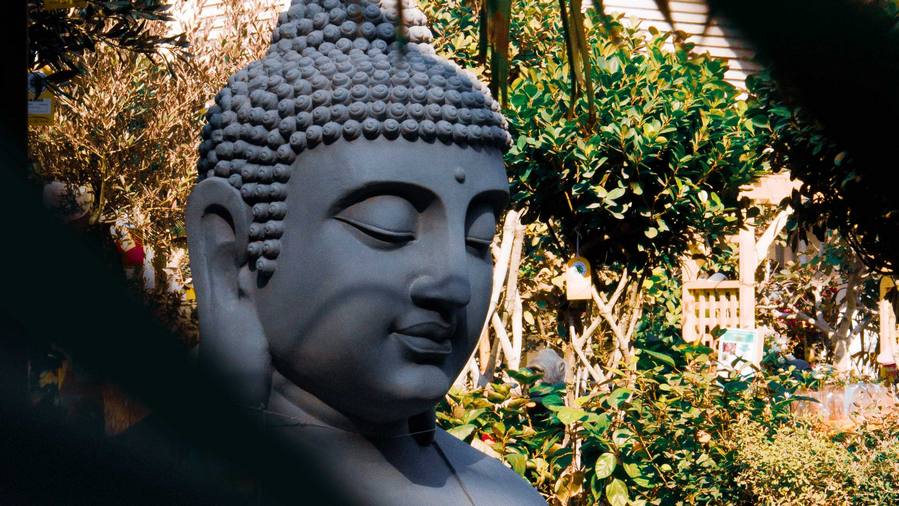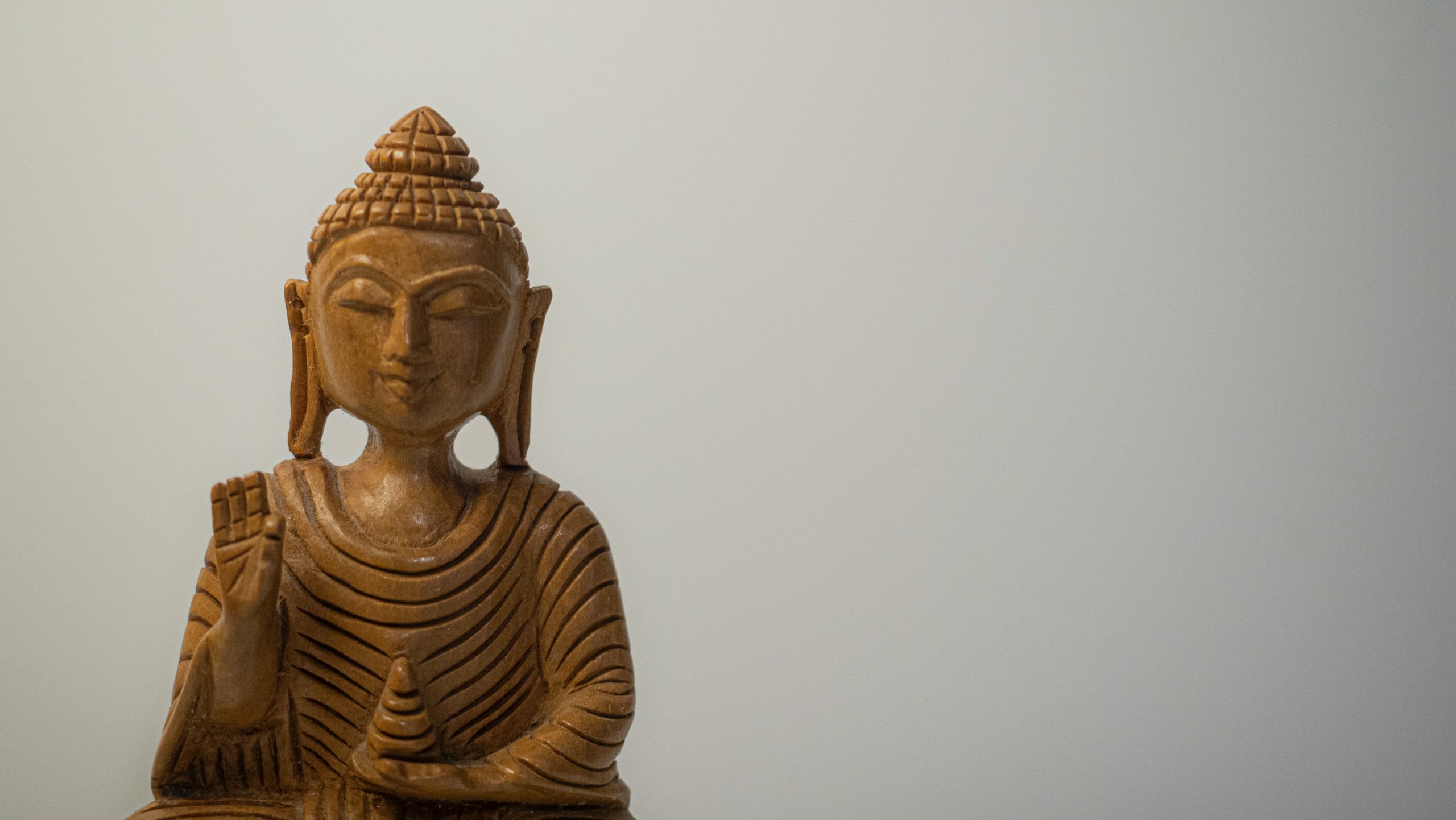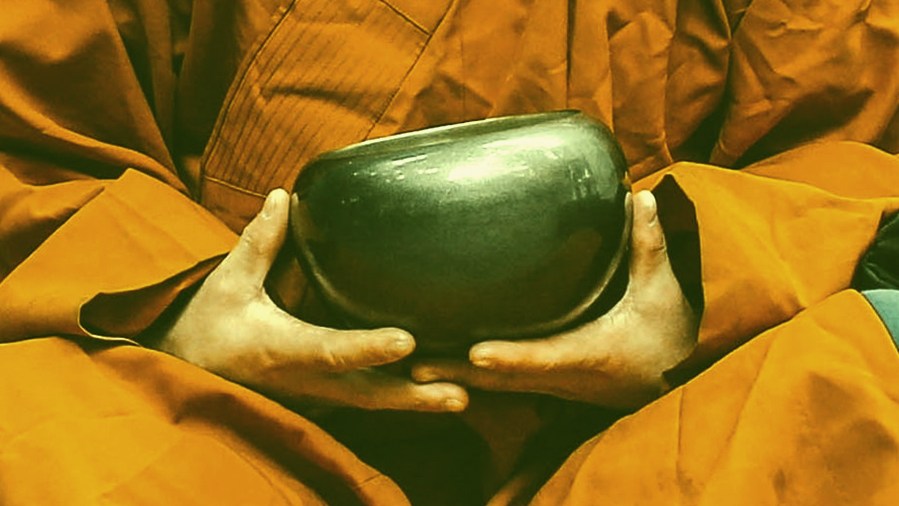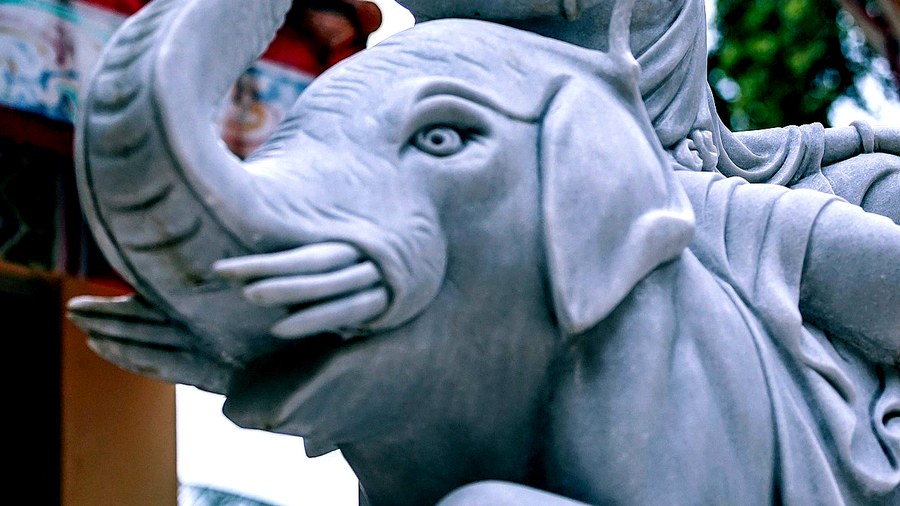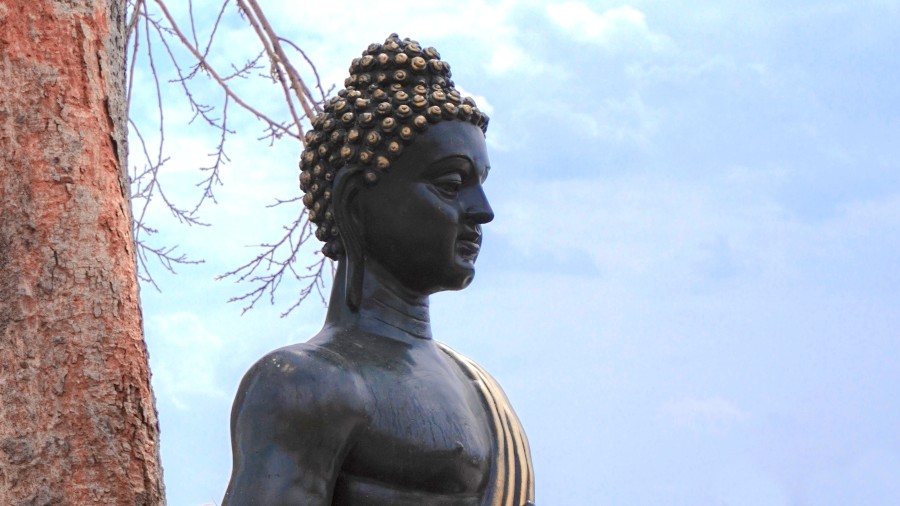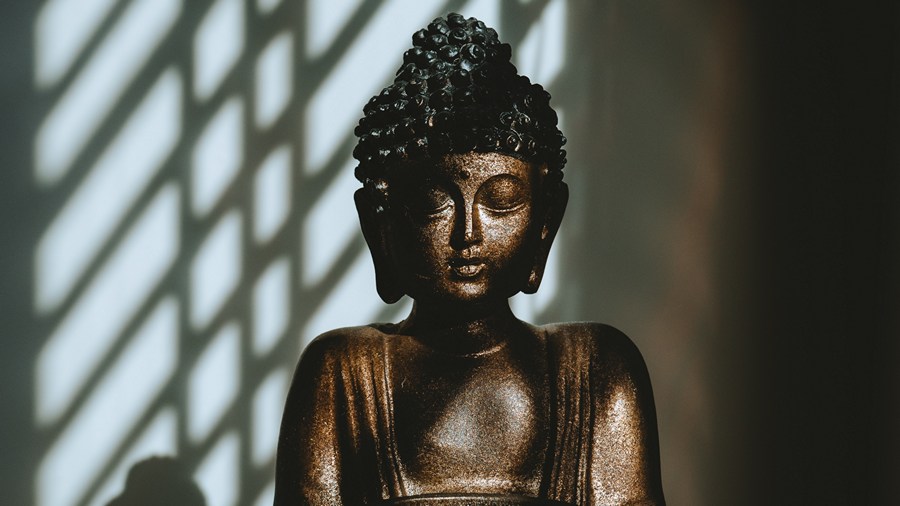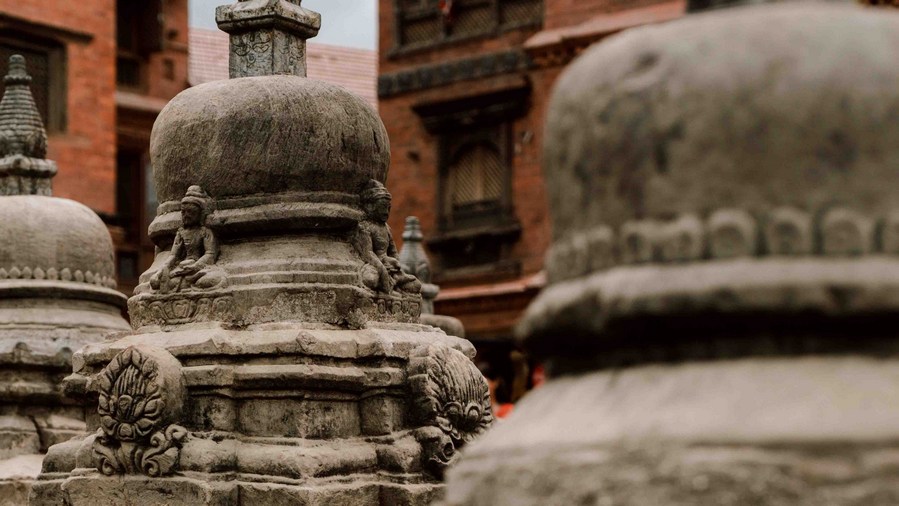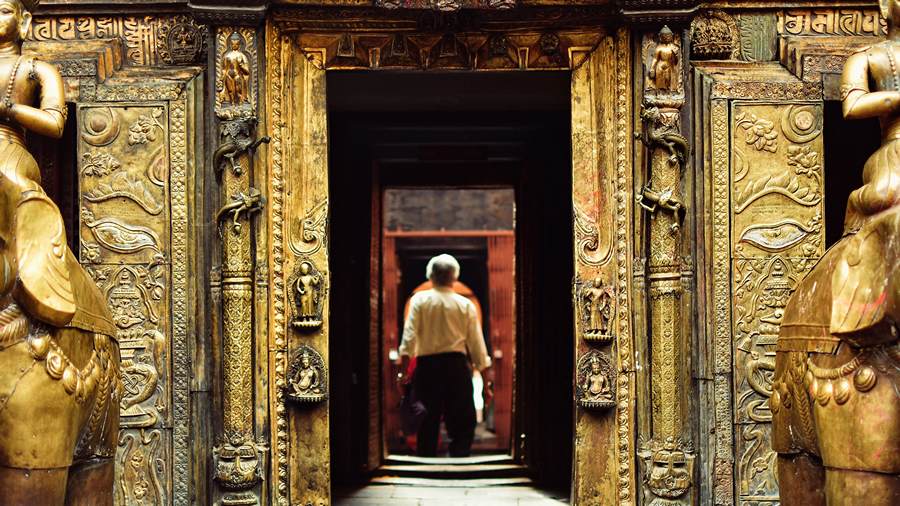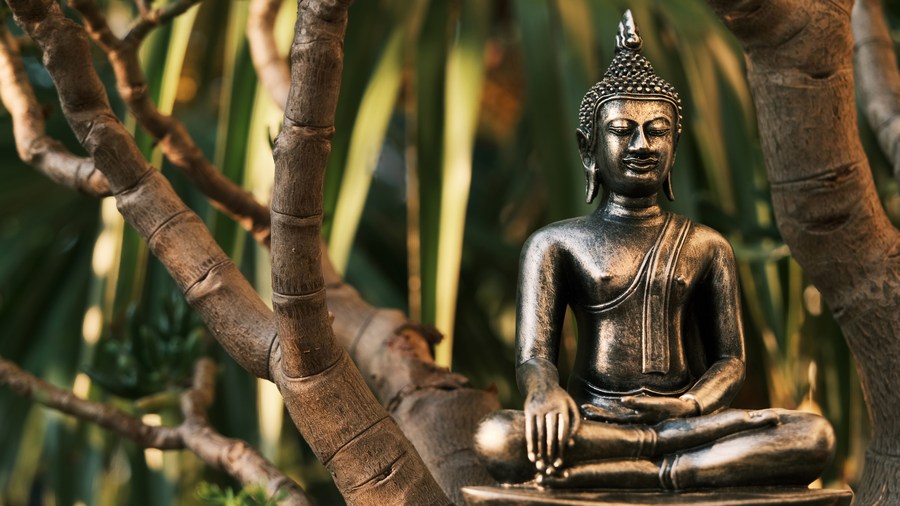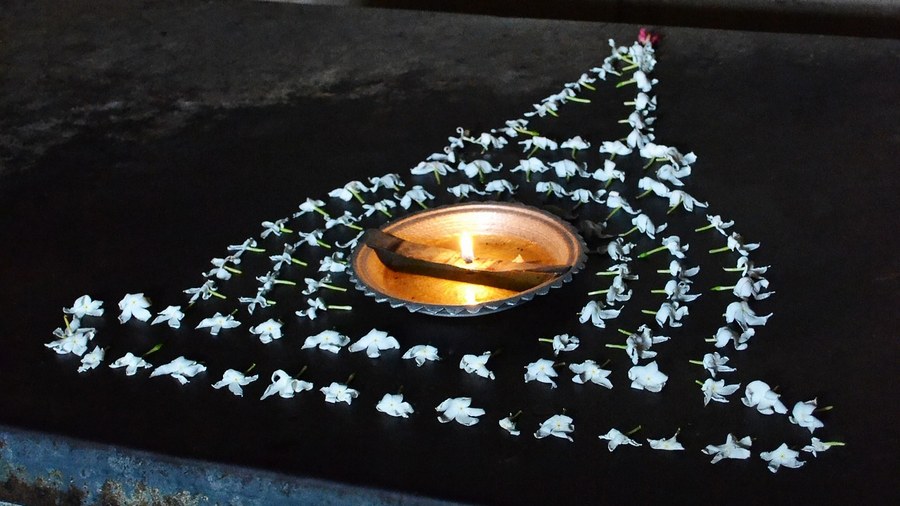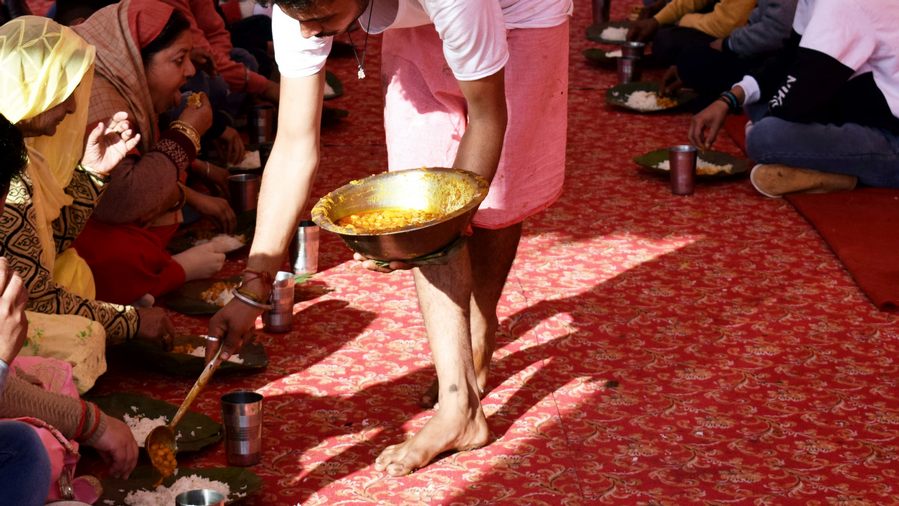On one occasion the Blessed One was dwelling at Vesālī in the hall with the peaked roof in the Great Wood. Then, in the morning, the Blessed One dressed, took his bowl and robe, and entered Vesālī for alms. Having walked for alms in Vesālī, after the meal, when he had returned from his alms round, he entered the Great Wood and sat down at the foot of a tree to dwell for the day.
Now on that occasion a number of Licchavi youths had taken their strung bows and were walking and wandering in the Great Wood, accompanied by a pack of dogs, when they saw the Blessed One seated at the foot of a tree to dwell for the day. When they saw him, they put down their strung bows, sent the dogs off to one side, and approached him. They paid homage to the Blessed One and silently stood in attendance upon him with their hands joined in reverential salutation.
Now on that occasion the Licchavi youth Mahānāma was walking and wandering for exercise in the Great Wood when he saw the Licchavi youths silently standing in attendance upon the Blessed One with their hands joined in reverential salutation. He then approached the Blessed One, paid homage to him, sat down to one side, and uttered this inspired utterance: “They will be Vajjis! They will be Vajjis!”
The Blessed One said: “But why, Mahānāma, do you say: ‘They will be Vajjis! They will be Vajjis!’?”
“These Licchavi youths, Bhante, are violent, rough, and brash. They are always plundering any sweets that are left as gifts among families, whether sugar cane, jujube fruits, cakes, pies, or sugarballs, and then they devour them. They give women and girls of respectable families blows on their backs. Now they are standing silently in attendance upon the Blessed One with their hands joined in reverential salutation.”
“Mahānāma, in whatever clansman five qualities are found—whether he is a consecrated khattiya king, a country gentleman, the general of an army, a village headman, a guildmaster, or one of those who exercise private rulership over various clans—only growth is to be expected, not decline. What five?
(1) “Here, Mahānāma, with wealth acquired by energetic striving, amassed by the strength of his arms, earned by the sweat of his brow, righteous wealth righteously gained, a clansman honors, respects, esteems, and venerates his parents. His parents, being honored, respected, esteemed, and venerated, have compassion on him with a good heart, thinking: ‘May you live long and maintain a long life span.’ When a clansman’s parents have compassion for him, only growth is to be expected for him, not decline.
(2) “Again, Mahānāma, with wealth acquired by energetic striving, amassed by the strength of his arms, earned by the sweat of his brow, righteous wealth righteously gained, a clansman honors, respects, esteems, and venerates his wife and children, his slaves, workers, and servants. Being honored, respected, esteemed, and venerated, they have compassion on him with a good heart, thinking: ‘May you live long!’ When a clansman’s wife and children, slaves, workers, and servants have compassion for him, only growth is to be expected for him, not decline.
(3) “Again, Mahānāma, with wealth acquired by energetic striving, amassed by the strength of his arms, earned by the sweat of his brow, righteous wealth righteously gained, a clansman honors, respects, esteems, and venerates the owners of the neighboring fields and those with whom he does business. Being honored, respected, esteemed, and venerated, they have compassion on him with a good heart, thinking: ‘May you live long!’ When the owners of the neighboring fields and those with whom he does business have compassion for a clansman, only growth is to be expected for him, not decline.
(4) “Again, Mahānāma, with wealth acquired by energetic striving, amassed by the strength of his arms, earned by the sweat of his brow, righteous wealth righteously gained, a clansman honors, respects, esteems, and venerates the oblational deities. Being honored, respected, esteemed, and venerated, they have compassion on him with a good heart, thinking: ‘May you live long!’ When the oblational deities have compassion for a clansman, only growth is to be expected for him, not decline.
(5) “Again, Mahānāma, with wealth acquired by energetic striving, amassed by the strength of his arms, earned by the sweat of his brow, righteously gained, a clansman honors, respects, esteems, and venerates ascetics and brahmins. Being honored, respected, esteemed, and venerated, they have compassion on him with a good heart, thinking: ‘May you live long!’ When ascetics and brahmins have compassion for a clansman, only growth is to be expected for him, not decline.
“Mahānāma, in whatever clansman these five qualities are found—whether he is a consecrated khattiya king, a country gentleman, the general of an army, a village headman, a guildmaster, or one of those who exercise private rulership over various clans—only growth is to be expected, not decline.”
He always does his duty toward his parents;
he promotes the welfare of his wife and children.
He takes care of the people in his home
and those who live in dependence on him.The wise person, charitable and virtuous,
acts for the good of both kinds of relatives,
those who have passed away
and those still living in this world.He benefits ascetics and brahmins,
and also the deities;
he is one who gives rise to joy
while living a righteous life at home.Having done what is good,
he is worthy of veneration and praise.
They praise him here in this world
and after death he rejoices in heaven.
Read this translation of Aṅguttara Nikāya 5.58 Licchavikumārakasutta: Licchavi Youths by Bhikkhu Bodhi on SuttaCentral.net. Or read a different translation on SuttaCentral.net. Or listen on SC-Voice.net. Or explore the Pali on DigitalPaliReader.online.
Or read a translation in Deutsch, Bengali, Español, Français, Indonesian, မြန်မာဘာသာ, ру́сский язы́к, සිංහල, ไทย, Tiếng Việt, or 汉语. Learn how to find your language.

